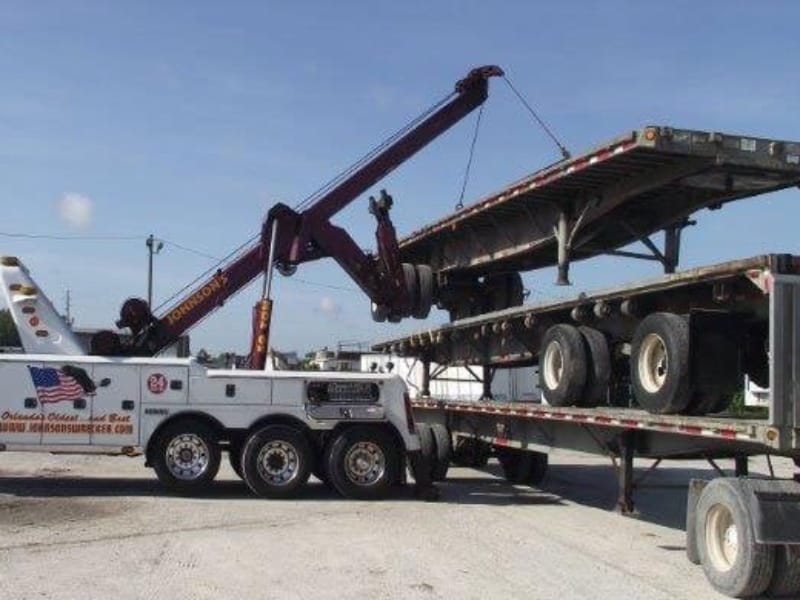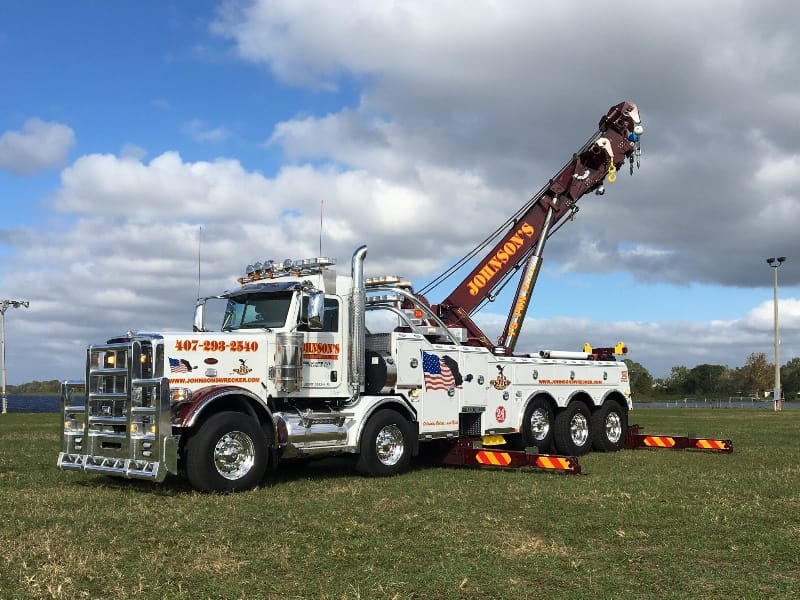Here’s What You Need to Know About Towing Capacity
Most drivers check their fuel, tires, or oil before a trip. But towing capacity? That one often gets overlooked. Until something goes wrong. Knowing how much weight your vehicle can safely pull is one of the most important numbers you can pay attention to. Trust our Southchase towing experts on this. Towing capacity isn’t just a sticker on the door or a random figure in the manual. It tells you how much weight your vehicle can pull without damaging its frame, suspension, brakes, or engine. Exceeding that number can lead to accidents, breakdowns, or worse, complete vehicle failure. And that’s a repair no one wants to pay for.

What Is Towing Capacity, Really?
Towing capacity is the maximum amount of weight your vehicle can pull while maintaining safe driving conditions. It’s determined by the vehicle manufacturer after testing and evaluating multiple factors:
- Engine power and torque
- Transmission strength
- Axle ratios
- Suspension systems
- Frame construction
- Brake power
All these parts work together, and when one is overloaded, the whole system suffers. That’s why towing capacity is a carefully calculated limit, not a suggestion.
Knowing your vehicle’s towing capacity helps you avoid more than just mechanical strain. Overloading also affects your ability to steer, stop, and keep the trailer under control.
How Towing Capacity Is Calculated
If you’re wondering how manufacturers come up with towing numbers, here’s a quick breakdown. It starts with the Gross Vehicle Weight Rating (GVWR) and the Gross Combined Weight Rating (GCWR).
- GVWR: The maximum weight your vehicle can carry on its own, including passengers and cargo.
- GCWR: The total maximum weight of your vehicle plus the trailer and whatever is loaded onto it.
To find your towing capacity:
GCWR – Curb Weight of Vehicle = Max Towing Capacity
Let’s say your truck has a GCWR of 15,000 pounds and weighs 6,000 pounds on its own. That leaves you with a towing capacity of 9,000 pounds, assuming the truck isn’t loaded with gear and passengers. The more you carry in the truck, the less you can safely pull behind it.
Signs You’re Exceeding Your Limit
If you’ve already hitched up and you’re wondering whether you’re towing too much, here are a few red flags:
- Sluggish acceleration or overheating engine
- Trailer sway or fishtailing
- Reduced braking ability
- Excessive strain on the suspension (rear end of the truck sitting low)
- Warning lights or check engine notifications
If you notice any of these, stop immediately. Over-towing isn’t something to tough out, it’s something to fix before damage is done.
Why We Care About Towing Capacity
At Johnson’s Wrecker Service, we’ve seen what happens when drivers overlook their towing limits. It’s not pretty. And it usually ends in a call to our Southchase towing team. We want every driver to know their numbers before they load up and hit the road to avoid accidents and other uncomfortable surprises.
Here are a few reminders we share with Southchase drivers:
- Always check your owner’s manual or manufacturer’s specs.
- Don’t guess, weigh your trailer and load before hitting the road.
- Use a weight-distributing hitch if your load is near the limit.
- Consider trailer brakes for added control and safety.
- Never assume a bigger engine means higher towing capacity.
Towing safely means being honest about what your vehicle can do.

Johnson’s Wrecker Service: Southchase Towing Experts You Can Count On
When it comes to Southchase towing, Johnson’s Wrecker Service is your local Southchase towing team of experts. We’ve been handling everything from emergency recoveries to heavy-duty tows for years, and we know how to protect both your vehicle and your load. Whether you’re towing a small trailer or a loaded car hauler, we’re here to help you do it right. Our Southchase towing crew can assist with everything from calculating your load to safely transporting your vehicle when something goes wrong.
Don’t risk your ride by ignoring towing limits. Give us a call for trusted Southchase towing that puts safety first. Every time.
FAQ
How do I find my vehicle’s towing capacity?
Check the owner’s manual first. If you don’t have it, the automaker’s website can also provide the exact tow rating based on your year, make, model and drivetrain.
Do larger engines automatically mean higher tow ratings?
Not always. Frame construction, axle ratio, brakes, and transmission strength all influence the total number. Engine size is just one piece.
Does cargo inside my truck count toward the towing number?
Yes. Anything added to the vehicle itself reduces how much you can safely pull behind it.
Is trailer sway a sign of being overloaded?
It can be. It can also be a result of poor tongue weight distribution, weak suspension, or incorrect hitch setup.
What’s the difference between GVWR and GCWR?
GVWR is the maximum weight the truck can carry by itself. GCWR is the maximum combined weight of truck and trailer together.
Should I weigh my trailer every time?
If the load changes, yes. Weight fluctuates more than people think, and the safest approach is to know the actual number before you hit the road.
